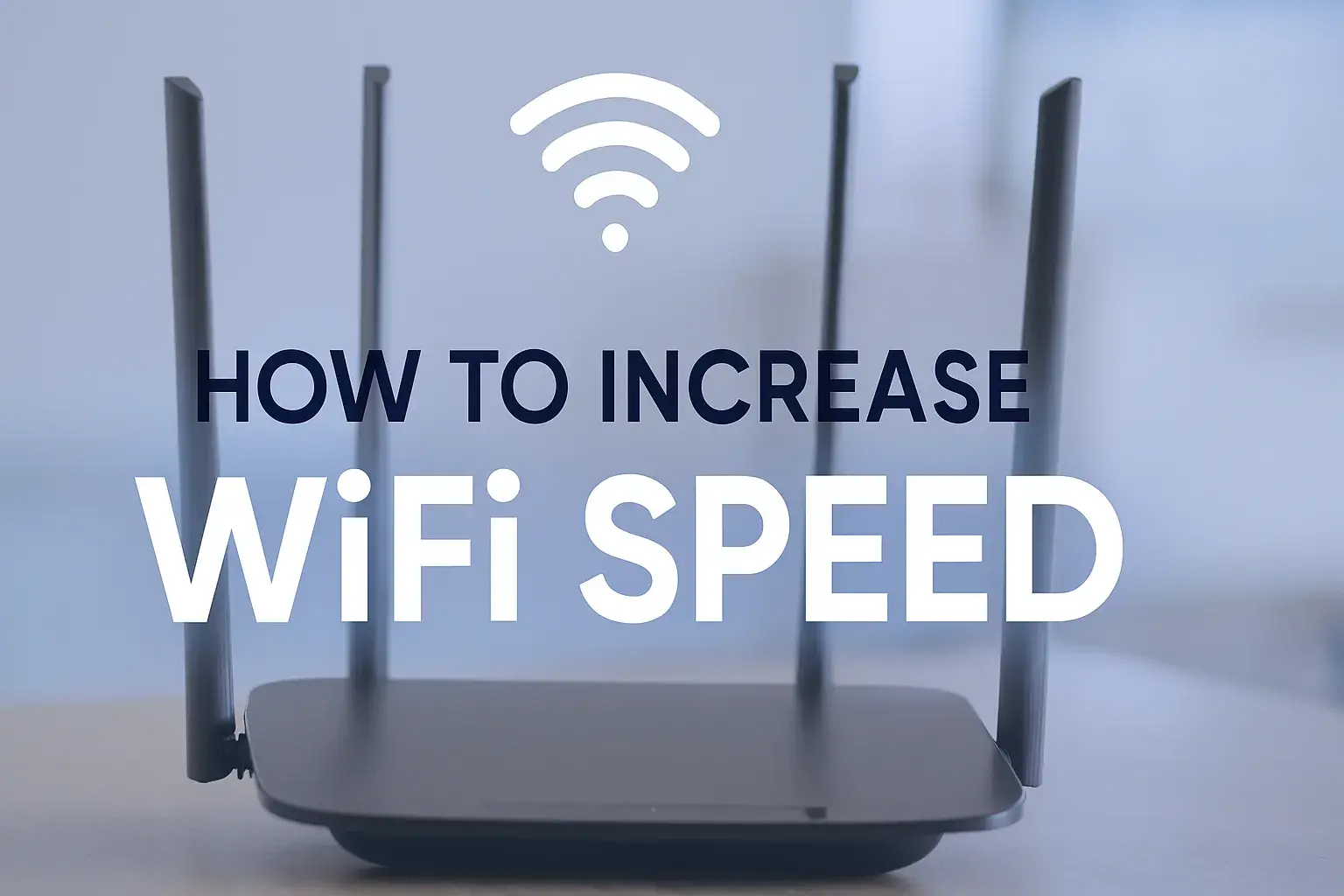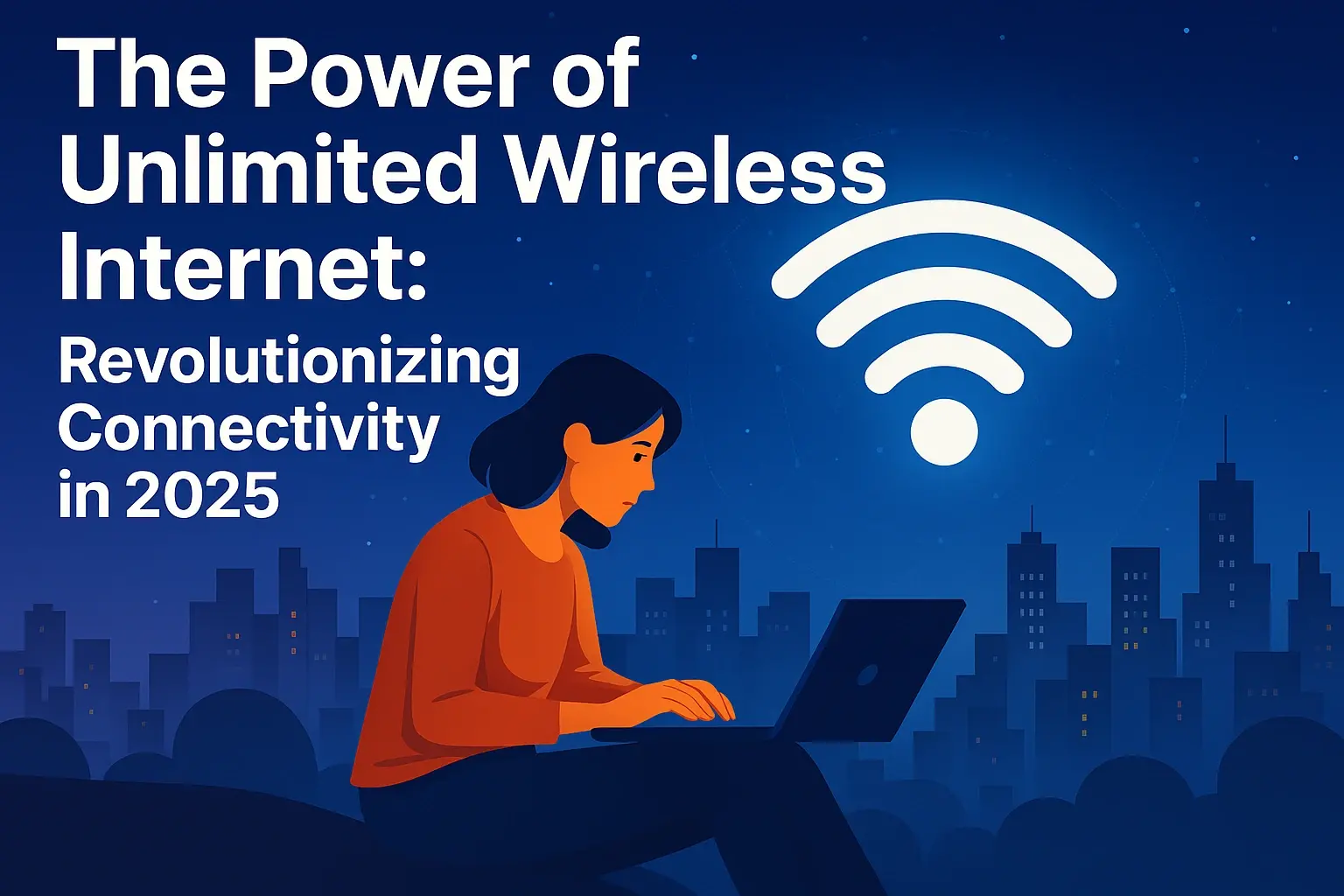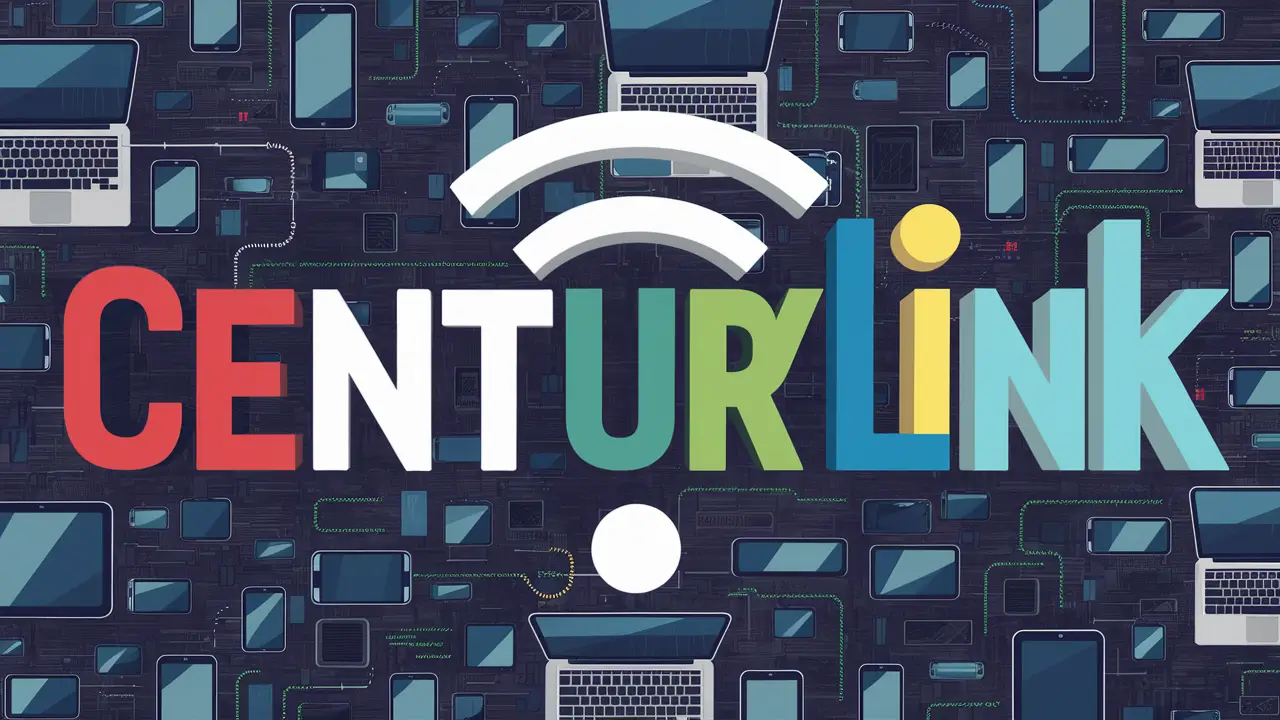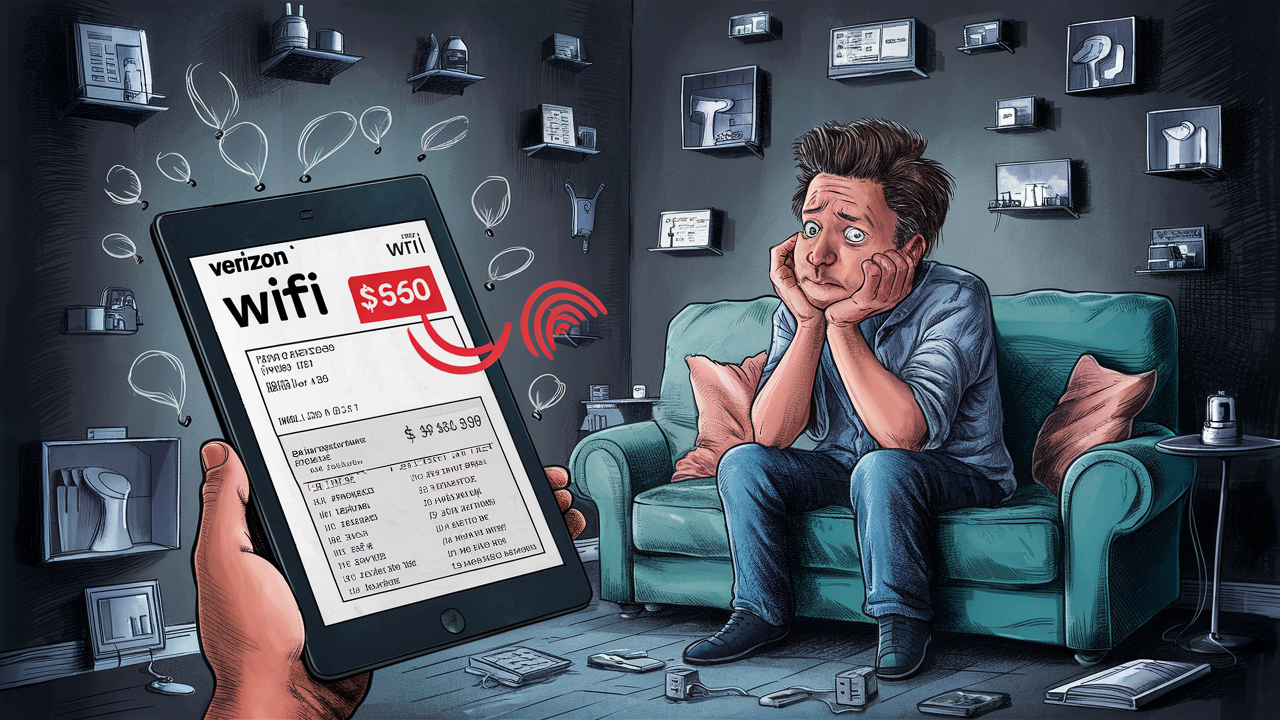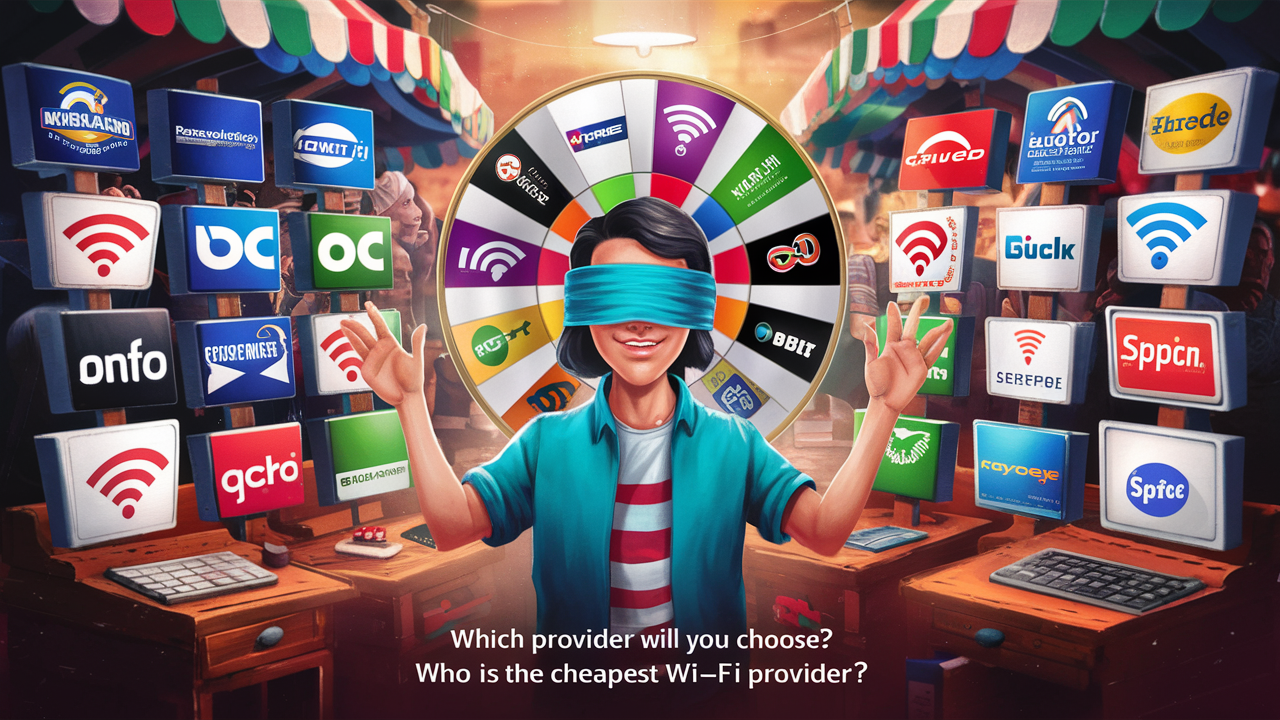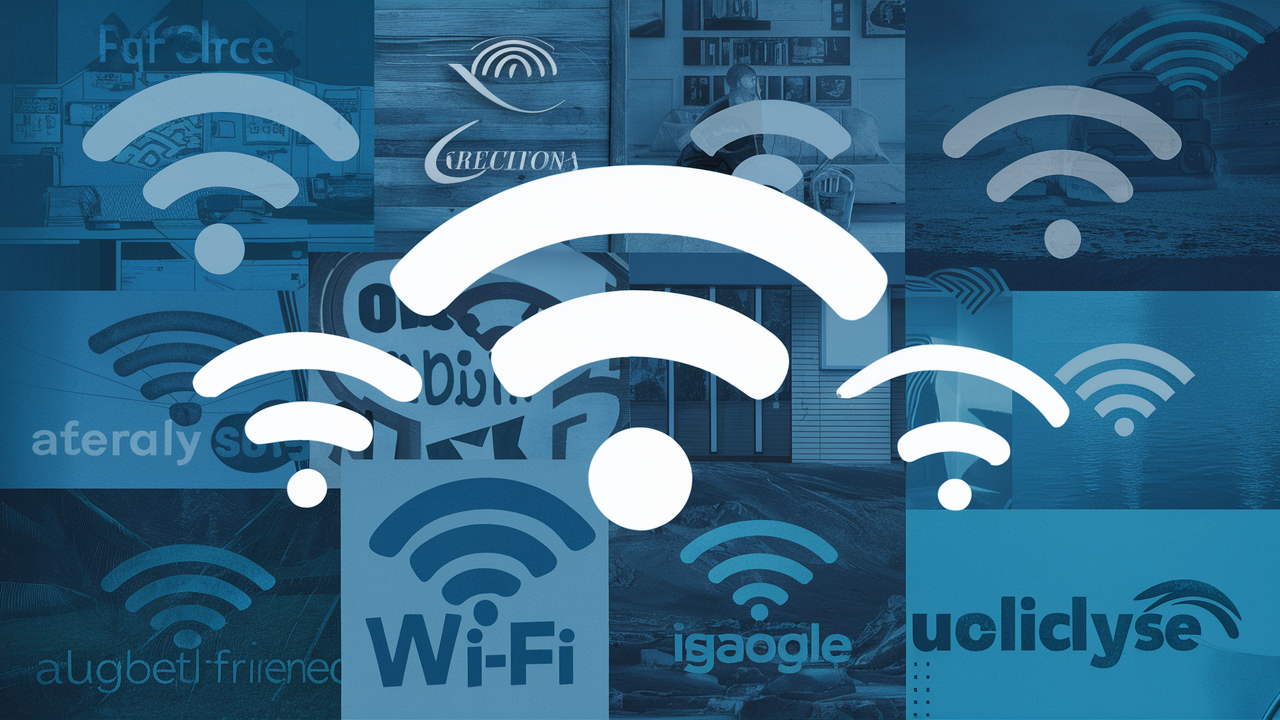Does Wi-Fi get worse at night?
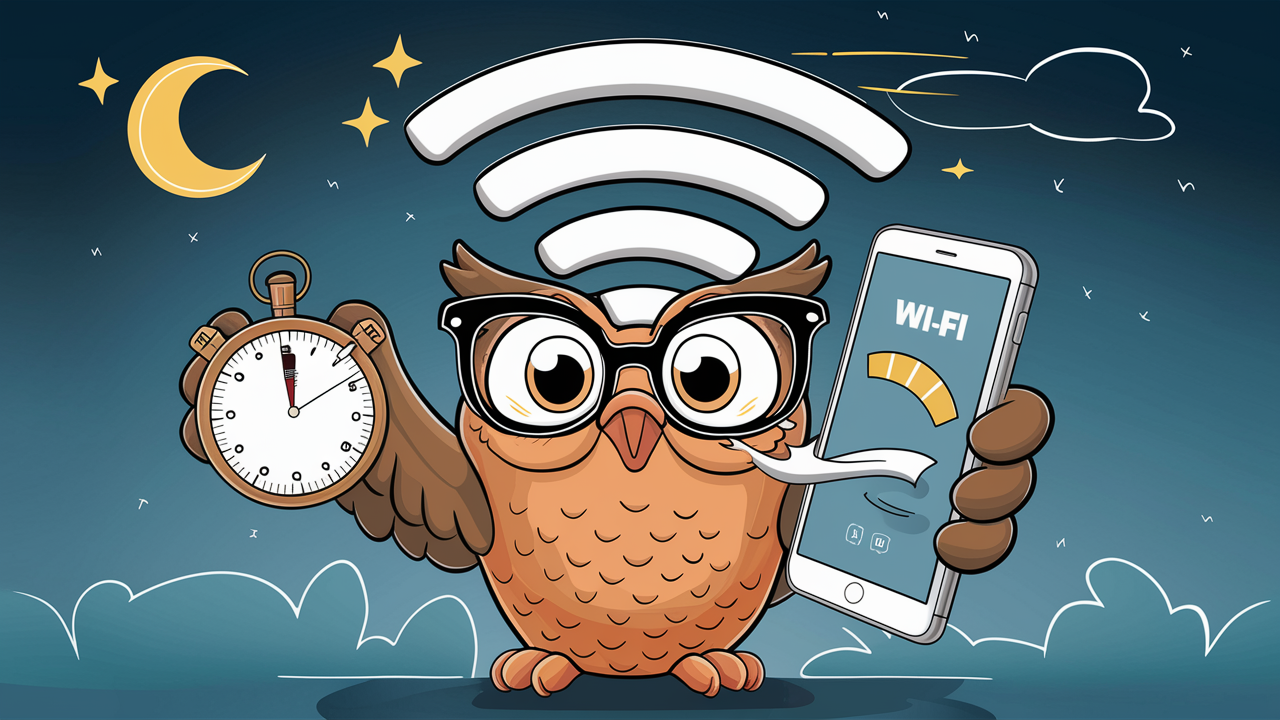
Yes, your Wi-Fi can indeed experience performance degradation at night. This common frustration stems from a combination of increased network traffic, environmental interference, and even your own device usage patterns. Understanding these factors is the first step to optimizing your connection.
Understanding Wi-Fi Performance
Wi-Fi, or Wireless Fidelity, is the backbone of our connected lives. It allows devices to communicate wirelessly with a router, which in turn connects them to the internet. The performance of your Wi-Fi network is a complex interplay of several factors, including the speed of your internet plan, the capabilities of your router, the number of devices connected, the physical environment, and the radio frequencies used for transmission. In 2025, with the proliferation of smart home devices and high-bandwidth applications like 8K streaming and cloud gaming, the demands on our Wi-Fi networks are higher than ever before. Understanding these fundamental elements is crucial before delving into the specific reasons why your Wi-Fi might falter during nighttime hours.
The speed and reliability of your Wi-Fi are not static. They can fluctuate based on numerous variables. Think of it like a highway: during off-peak hours, traffic flows smoothly. During rush hour, congestion can slow everything down. Similarly, your Wi-Fi network experiences its own "rush hour." The technology itself, operating on specific radio frequencies (primarily 2.4 GHz and 5 GHz bands), is susceptible to interference from other devices using these same frequencies. The strength of the Wi-Fi signal, often measured in dBm, diminishes with distance and obstacles like walls and furniture. The more devices actively using the network, the more the available bandwidth is divided, potentially leading to slower speeds for each individual device. Even the age and quality of your router play a significant role; older routers may not be equipped to handle the demands of modern internet usage and a high density of connected devices.
Furthermore, the very nature of wireless communication means that external factors can have an impact. Weather patterns, neighboring Wi-Fi networks, and even certain household appliances can introduce noise into the signal. For instance, a microwave oven operating on the 2.4 GHz band can temporarily disrupt Wi-Fi signals in its vicinity. The security protocols your network uses also have a minor impact on performance, with newer, more robust protocols generally offering better efficiency. As we move further into the 2020s, the expectation for seamless, high-speed connectivity is paramount, making any degradation in performance, especially at predictable times like night, a significant concern for users.
The Nighttime Factor: Why Wi-Fi Can Seem Worse
The perception that Wi-Fi gets worse at night is a common one, and it's not purely psychological. Several tangible factors converge during evening hours to create a perfect storm for network slowdowns and instability. These reasons are multifaceted, ranging from increased local usage to broader environmental influences. By dissecting these elements, we can better understand and address the root causes of this nocturnal Wi-Fi dip.
Increased Household Usage
Perhaps the most significant contributor to nighttime Wi-Fi woes is the surge in simultaneous internet usage within a single household. As the workday concludes and individuals settle in for the evening, more devices come online and demand bandwidth. Families often gather to stream movies or TV shows in high definition (or even 4K), play online multiplayer games, engage in video calls with friends and relatives, browse social media, and download or upload files. Each of these activities consumes a portion of your available internet bandwidth. When multiple users and devices are engaged in bandwidth-intensive tasks concurrently, the total available bandwidth is divided among them, inevitably leading to slower speeds for everyone.
Consider a typical household in 2025. It's not uncommon to find two or three smart TVs streaming simultaneously, several smartphones and tablets being used for browsing and social media, a gaming console downloading updates or playing online, and perhaps a laptop used for work or entertainment. This creates a significant load on the router and the internet connection. The router, acting as the central hub, must manage and prioritize traffic for all these devices. If the total demand exceeds the router's capacity or the internet service provider's (ISP) allocated bandwidth, performance will suffer. This is especially true for older routers or those not designed for a high density of connected devices. The 2.4 GHz band, often used by older or less demanding devices, becomes particularly congested during these peak evening hours.
Moreover, background processes on devices also contribute. Many applications are designed to automatically update or sync data when the device is idle or connected to Wi-Fi, and this often happens during the evening. Cloud backups for photos and videos, software updates for operating systems and applications, and automatic game downloads can all silently consume significant bandwidth without direct user interaction. This hidden network traffic adds to the overall load, further exacerbating the perceived slowdown.
External Interference
While household usage is a primary driver, external factors can also contribute to nighttime Wi-Fi degradation. The radio frequencies used by Wi-Fi (2.4 GHz and 5 GHz) are shared spectrums, meaning other devices and networks operate on these same bands. At night, as more people are home and using their own Wi-Fi networks, the number of overlapping signals in your neighborhood increases significantly. This leads to what's known as co-channel and adjacent-channel interference. Your router has to work harder to distinguish your network's signal from the "noise" generated by dozens, if not hundreds, of neighboring Wi-Fi networks. This competition for airwaves can lead to packet loss, increased latency, and reduced throughput.
Beyond neighboring Wi-Fi networks, other common household appliances can cause interference. Devices that operate on the 2.4 GHz band, such as microwave ovens, Bluetooth devices, cordless phones, and even some baby monitors, can emit radio waves that disrupt Wi-Fi signals. While the impact might be localized and temporary, the cumulative effect, especially when multiple such devices are active, can contribute to a less stable connection. In 2025, with the explosion of the Internet of Things (IoT), the number of these potentially interfering devices in and around homes has only grown. Smart plugs, smart lights, smart thermostats, and wireless security cameras, while convenient, often utilize the 2.4 GHz band, adding to the spectral congestion.
Furthermore, physical obstructions play a role. While not exclusive to nighttime, the signal strength can be affected by the density of walls, furniture, and appliances in your home. Even if your router is centrally located, signal degradation over distance and through materials can become more apparent when multiple devices are trying to maintain a connection simultaneously. Some sources suggest that atmospheric conditions, though less impactful than other factors, can also play a minor role in signal propagation, potentially affecting Wi-Fi performance, especially over longer distances or in less ideal router placements.
Router Limitations and Overheating
Your Wi-Fi router is the heart of your home network. Its capabilities, age, and condition significantly influence performance. Many routers, especially older models or those provided by ISPs, may not be equipped to handle the demands of modern internet usage, particularly during peak hours. Routers have a finite processing power and memory. When overwhelmed by too many simultaneous connections or excessively high bandwidth demands, they can struggle to manage traffic efficiently, leading to slowdowns and dropped connections. This is often referred to as "router bottlenecking."
Another often-overlooked factor is router overheating. Routers are typically small, fanless devices that generate heat during operation. When running for extended periods, especially under heavy load (like during peak evening hours), they can overheat. Overheating can cause components to malfunction, leading to reduced performance, intermittent connectivity, or even complete shutdowns. This is more common in routers that are placed in enclosed spaces, near heat sources, or have accumulated dust that impedes ventilation. The constant demand during evenings, coupled with the router's continuous operation throughout the day, can push an older or poorly ventilated router past its optimal operating temperature.
The Wi-Fi standard your router supports also plays a crucial role. Older standards like 802.11g or 802.11n are significantly slower and less efficient than newer standards like 802.11ac (Wi-Fi 5) and 802.11ax (Wi-Fi 6/6E). If your router is not up-to-date, it might be a bottleneck for your internet speed, especially when multiple devices are connected. In 2025, Wi-Fi 6 and Wi-Fi 6E are becoming increasingly common, offering better performance, capacity, and efficiency, particularly in crowded environments. An outdated router simply cannot keep up with the demands of a modern connected home during peak usage times.
Device Behavior and Background Processes
The devices connected to your Wi-Fi network are not passive participants. Their own behavior, software, and background processes can significantly impact network performance, particularly at night. As mentioned earlier, automatic updates are a major culprit. Operating systems (Windows, macOS, iOS, Android), applications, and even games frequently download and install updates when the device is idle and connected to Wi-Fi. These downloads can consume substantial bandwidth, slowing down other activities on the network.
Cloud synchronization services are another common source of background network activity. Services like Google Drive, Dropbox, iCloud, and OneDrive constantly sync files between your devices and the cloud. If you've recently added a large number of photos or videos to your phone, for instance, your device might be busy uploading them to the cloud overnight, consuming significant upload bandwidth. This can affect download speeds for other devices and applications.
Some devices might also be running background applications that are more resource-intensive than you realize. For example, a computer might be running a torrent client, a cryptocurrency miner (though less common now due to efficiency concerns), or a demanding background simulation for a game. Even smart home devices can contribute. A security camera might be constantly streaming video to a cloud service, or a smart speaker might be performing ongoing updates or data processing. The cumulative effect of these background processes across multiple devices can create a substantial, often unnoticed, drain on your network resources.
Device firmware and software can also become outdated, leading to inefficiencies. Older drivers or firmware might not communicate optimally with your router, or they might have bugs that cause excessive network traffic. Regularly updating the software and firmware on all your connected devices, not just your router, is a crucial step in maintaining good network performance. The increasing complexity of software in 2025 means that these background processes are more sophisticated and potentially more bandwidth-hungry than ever before.
Seasonal and Environmental Shifts
While less impactful than household usage or direct interference, certain seasonal and environmental shifts can subtly influence Wi-Fi performance, sometimes more noticeably at night. For instance, changes in humidity and temperature can affect the propagation of radio waves. While the effect is generally minor, extreme conditions might introduce slight variations in signal strength and stability. In some regions, atmospheric conditions can play a role, especially for longer-range Wi-Fi signals or mesh networks where nodes communicate over greater distances.
The density of usage in a neighborhood can also change seasonally. During holidays or summer vacations, more people might be home, leading to increased Wi-Fi congestion. Conversely, during periods when many people are away, the airwaves might be clearer. However, for the specific question of nighttime degradation, the consistent increase in local household usage tends to be the dominant factor. Some anecdotal evidence suggests that certain types of electronic devices that are used more frequently in colder months (e.g., electric heaters with wireless capabilities) might introduce more interference, though this is highly speculative and dependent on the specific devices.
It's also worth noting that the materials used in home construction can affect Wi-Fi signals. While this is a constant factor, its impact can be amplified when many devices are trying to connect simultaneously. For example, homes with a lot of metal, concrete, or certain types of insulation might experience more signal attenuation. This means that even if your router is performing optimally, the physical structure of your home can limit the effective range and strength of the Wi-Fi signal, especially when the network is under heavy load during evening hours.
Diagnosing Your Wi-Fi Issues
Before you can effectively solve the problem of your Wi-Fi performing worse at night, you need to accurately diagnose the issue. This involves a systematic approach to gathering data about your network's performance and identifying potential bottlenecks. Relying on anecdotal evidence alone can lead to misdiagnoses and ineffective solutions. By employing a few key diagnostic tools and techniques, you can pinpoint the exact causes of your nighttime Wi-Fi woes.
Speed Tests: Your First Line of Defense
The most straightforward way to assess your Wi-Fi performance is by conducting speed tests. These tests measure your internet connection's download and upload speeds, as well as its latency (ping). It's crucial to perform these tests at different times of the day, especially during peak evening hours when you experience the slowdown, and compare them to tests conducted during off-peak hours (e.g., early morning). This comparison will provide objective data on how much your speeds are degrading.
Use reputable speed test websites or applications. Popular options include Speedtest.net by Ookla, Fast.com (powered by Netflix), and Google's built-in speed test accessible by searching "internet speed test." For the most accurate results, conduct tests on a device connected directly to your router via an Ethernet cable, and then repeat the tests on a device connected wirelessly. This comparison helps determine if the issue lies with your internet service itself or with your Wi-Fi network's performance.
When interpreting the results, consider your subscribed internet plan. If your wired speeds are consistently much lower than what your ISP advertises, the problem might be with your internet service. However, if wired speeds are good but wireless speeds are significantly lower, especially at night, then the issue is likely with your Wi-Fi network. Pay attention to latency (ping) as well. High latency can make online gaming and video conferencing feel sluggish, even if download speeds are acceptable. A spike in latency at night is a strong indicator of network congestion.
Example 2025 Speed Test Scenario:
| Time | Connection Type | Download Speed (Mbps) | Upload Speed (Mbps) | Latency (ms) | Notes |
|---|---|---|---|---|---|
| Tuesday 10:00 AM | Wired (Ethernet) | 480 | 45 | 12 | Matches ISP plan |
| Tuesday 10:05 AM | Wireless (Wi-Fi 6) | 450 | 42 | 15 | Slight drop, expected |
| Tuesday 8:30 PM | Wired (Ethernet) | 475 | 44 | 14 | Stable |
| Tuesday 8:35 PM | Wireless (Wi-Fi 6) | 120 | 20 | 85 | Significant degradation |
This table clearly illustrates a problem specific to the wireless connection during peak evening hours.
Signal Strength Analysis
Understanding your Wi-Fi signal strength is crucial. Weak signals lead to slower speeds and dropped connections. Tools are available to help you visualize and measure signal strength throughout your home.
Most modern smartphones and laptops have built-in Wi-Fi analyzers. On Windows, you can use the command prompt to check signal strength. On macOS, holding the Option key and clicking the Wi-Fi icon in the menu bar reveals detailed information, including signal strength (in dBm). On smartphones, numerous apps like "WiFi Analyzer" (Android) or "Network Analyzer Lite" (iOS) can display signal strength in real-time as you move around your home.
The ideal signal strength is typically above -67 dBm. Anything below -70 dBm can start to cause issues, and below -80 dBm is generally considered poor. At night, if you notice that the signal strength on your devices drops significantly in certain areas of your home, it could be due to increased interference or the router struggling to maintain a strong signal under load. This might indicate that your router's range is insufficient for your home, or that certain areas are experiencing excessive interference.
If you have a mesh Wi-Fi system, these diagnostic tools can also help you identify "dead zones" or areas where the connection between nodes is weak. In 2025, with the increasing adoption of mesh systems, ensuring optimal node placement and inter-node communication is vital for consistent performance throughout the home.
Router Logs and Monitoring
Many routers offer advanced diagnostic features through their web interface or a dedicated mobile app. Accessing your router's administrative panel (usually by typing an IP address like 192.168.1.1 or 192.168.0.1 into a web browser) can provide valuable insights.
Look for sections related to "System Logs," "Event Logs," or "Traffic Monitoring." These logs can record events such as devices connecting and disconnecting, potential security threats, and errors. If your router is overheating, you might find logs indicating high CPU usage or memory consumption, especially during the evening hours. Some advanced routers also provide real-time bandwidth usage statistics per device, allowing you to identify which devices or applications are consuming the most bandwidth at any given time.
Monitoring your router's CPU and memory usage during peak times can reveal if the router itself is the bottleneck. If these metrics are consistently hitting 90-100% during the evening, it's a strong indication that your router is struggling to keep up. Many routers also offer a "Client List" which shows all connected devices. You can cross-reference this with your observations of slow speeds to identify potential culprits.
Interference Detection Tools
To diagnose interference issues, specialized tools can be helpful. As mentioned, Wi-Fi analyzer apps can often display the Wi-Fi channels being used by neighboring networks. This information is critical for channel optimization.
For more in-depth analysis, especially if you suspect interference from non-Wi-Fi devices (like microwaves or Bluetooth), you might need a dedicated spectrum analyzer. These are more advanced tools, but some software-based solutions can provide basic spectrum analysis capabilities. By scanning the radio frequency spectrum, these tools can identify sources of interference that might be impacting your Wi-Fi signal. Identifying these sources allows you to either move interfering devices or switch your Wi-Fi to a less congested channel.
In 2025, with the increasing use of the 6 GHz band by Wi-Fi 6E and Wi-Fi 7, there's more spectrum available, which can alleviate some congestion. However, the 2.4 GHz and 5 GHz bands remain crowded. Understanding which channels are most congested in your area is a vital step in troubleshooting. Tools like Wi-Fi Analyzer apps can show you a visual representation of channel usage, helping you identify the least crowded channels.
Optimizing Your Wi-Fi for Nighttime Performance
Once you've diagnosed the likely causes of your Wi-Fi performance degradation at night, it's time to implement solutions. Optimizing your network involves a combination of hardware adjustments, software configurations, and behavioral changes. The goal is to reduce congestion, minimize interference, and ensure your router and devices are operating as efficiently as possible.
Router Placement and Upgrades
The physical location of your Wi-Fi router is paramount. For optimal performance, place your router in a central, elevated, and open location. Avoid placing it in corners, behind large furniture, near metal objects, or close to appliances that can cause interference (like microwaves or cordless phone bases). Ideally, it should be unobstructed and have a clear line of sight to the areas where you use Wi-Fi the most. At night, when signal strength might be more critical due to higher device density, good placement becomes even more important.
If your router is old, underperforming, or simply not designed for the number of devices you have, upgrading is often the most effective solution. Consider a router that supports the latest Wi-Fi standards, such as Wi-Fi 6 (802.11ax) or Wi-Fi 6E. These standards offer improved efficiency, speed, and capacity, especially in crowded environments. For larger homes or areas with many dead zones, a mesh Wi-Fi system can provide more consistent coverage than a single router. Mesh systems consist of a main router and satellite nodes that work together to create a single, seamless Wi-Fi network.
When choosing a new router in 2025, look for features like MU-MIMO (Multi-User, Multiple Input, Multiple Output) and OFDMA (Orthogonal Frequency Division Multiple Access), which are key components of Wi-Fi 6 and enhance the router's ability to communicate with multiple devices simultaneously and efficiently. The processing power (CPU) and RAM of the router also matter; a more powerful router can handle more traffic and more connected devices without performance degradation.
Channel Optimization
Wi-Fi networks operate on specific channels within the 2.4 GHz and 5 GHz frequency bands. If your router is using a channel that is heavily congested by neighboring networks, your performance will suffer. Most routers are set to "auto" channel selection, which works well in less crowded areas but can lead to suboptimal choices in dense environments.
Access your router's administrative interface and navigate to the wireless settings. For the 2.4 GHz band, channels 1, 6, and 11 are generally recommended as they do not overlap with each other. For the 5 GHz band, there are more non-overlapping channels, and it's less prone to interference from other devices, but still benefits from optimization. Use a Wi-Fi analyzer app on your smartphone to identify the least congested channels in your area. Manually select the best channel for your router. It's advisable to scan again periodically, as neighboring networks might change their channels.
If you have a dual-band or tri-band router, consider assigning different bands or SSIDs (network names) to different types of devices. For example, high-bandwidth devices like smart TVs and gaming consoles can be placed on the 5 GHz or 6 GHz band, while less demanding devices like smart plugs and older laptops can use the 2.4 GHz band. This segmentation helps distribute the load more effectively.
Managing Network Traffic
Reducing the load on your network, especially during peak evening hours, is a direct way to improve performance. This involves managing how your devices use bandwidth.
Prioritize Devices: Many modern routers offer Quality of Service (QoS) settings. QoS allows you to prioritize certain devices or types of traffic over others. For example, you can set your primary streaming device or work computer to have higher priority, ensuring it gets the bandwidth it needs even when other devices are active. Configure QoS to prioritize latency-sensitive applications like video conferencing and online gaming during the times you use them most.
Schedule Bandwidth-Intensive Tasks: If possible, schedule large downloads, software updates, and cloud backups to occur during off-peak hours (e.g., overnight when you're not actively using the internet). Many operating systems and applications allow you to set download schedules. If your router supports it, you might be able to schedule bandwidth-intensive tasks for specific times.
Limit Simultaneous Streaming: While tempting to have multiple high-definition streams running, consider reducing the number of simultaneous high-bandwidth streams during peak hours. You can often adjust the streaming quality settings within apps like Netflix or YouTube to a lower resolution (e.g., from 4K to 1080p) to save bandwidth.
Monitor Background Processes: Regularly check your devices for background applications that might be consuming excessive bandwidth. Close unnecessary applications, disable auto-updates for non-critical software during peak hours, and review cloud sync settings.
Firmware Updates and Settings
Keeping your router's firmware up-to-date is critical for security and performance. Manufacturers regularly release firmware updates that fix bugs, improve stability, and enhance features. Outdated firmware can lead to inefficiencies and vulnerabilities.
Access your router's administrative interface and look for a "Firmware Update" or "System Update" section. Enable automatic updates if available, or manually check for updates regularly. The same applies to your connected devices; ensure their operating systems and drivers are also up-to-date. For smart home devices, check for app or firmware updates through their respective manufacturer's apps.
Beyond firmware, explore other router settings. Ensure your Wi-Fi security is set to WPA2 or WPA3, as these are the most secure and efficient protocols. Consider disabling Wi-Fi Multimedia (WMM) if you are experiencing severe latency issues and have a compatible router and devices, although for most users, WMM should be enabled for better traffic prioritization. Some routers also offer band steering, which automatically directs devices to the most appropriate band (2.4 GHz or 5 GHz) for optimal performance. Ensure this feature is enabled if available.
Wired Connections as a Fallback
For devices that require the most stable and fastest connection, especially during peak hours, using a wired Ethernet connection is always the superior option. Devices like desktop computers, gaming consoles, smart TVs, and network-attached storage (NAS) drives can benefit greatly from a direct Ethernet connection to the router.
Ethernet connections are not susceptible to wireless interference or signal degradation. They offer consistent speeds and lower latency, making them ideal for bandwidth-intensive activities like online gaming, 4K streaming, and large file transfers. If your router has enough Ethernet ports, utilize them for your critical devices. If not, consider purchasing a network switch to expand the number of available ports. In 2025, Gigabit Ethernet ports are standard on most routers and devices, providing ample bandwidth for most home networking needs.
For devices that cannot be easily wired, consider using Powerline adapters or MoCA (Multimedia over Coax Alliance) adapters. Powerline adapters use your home's electrical wiring to transmit network data, while MoCA adapters use existing coaxial cable wiring. These can provide a more stable connection than Wi-Fi in certain situations, especially if you have thick walls or other obstructions that weaken Wi-Fi signals.
Advanced Techniques for Power Users
For users who want to squeeze every bit of performance out of their network, several advanced techniques can be employed:
- Custom Router Firmware: For compatible routers, installing third-party firmware like DD-WRT or OpenWrt can unlock advanced features and greater control over network settings, potentially leading to improved performance and stability. This is an advanced technique and carries some risk if not done correctly.
- Dedicated Wi-Fi Analyzers: Beyond mobile apps, professional-grade Wi-Fi analyzers offer more detailed spectrum analysis and real-time performance metrics, allowing for more precise identification of interference sources and network bottlenecks.
- Network Segmentation (VLANs): For highly complex networks, Virtual Local Area Networks (VLANs) can segment your network into isolated subnets. This can improve security and performance by isolating different types of traffic (e.g., IoT devices from sensitive work devices). This is typically found on higher-end business-grade routers or managed switches.
- Optimizing Wi-Fi Antennas: If your router has external, adjustable antennas, experiment with their positioning. Sometimes a slight adjustment can improve signal strength and directionality in specific areas.
- Load Balancing and Link Aggregation: Some advanced routers or network setups can implement load balancing across multiple internet connections or link aggregation to combine multiple network interfaces for increased throughput.
These advanced techniques require a deeper understanding of networking principles but can yield significant improvements for those willing to invest the time and effort. Always back up your router's configuration before making significant changes.
The Future of Wi-Fi and Nighttime Performance
The evolution of Wi-Fi technology continues at a rapid pace, with new standards like Wi-Fi 7 (802.11be) emerging and promising even greater speeds, lower latency, and improved capacity. Wi-Fi 7, expected to become more mainstream in the coming years, introduces features like Multi-Link Operation (MLO), which allows devices to connect to the router simultaneously across multiple frequency bands, significantly boosting throughput and reliability. This could dramatically alleviate congestion issues, even during peak nighttime hours.
Furthermore, advancements in AI and machine learning are being integrated into routers and network management systems. These intelligent systems can proactively monitor network conditions, predict potential congestion, and automatically adjust settings (like channel selection or QoS priorities) to optimize performance in real-time. This adaptive approach will be crucial in managing the ever-increasing number of connected devices and bandwidth-hungry applications.
The development of more efficient spectrum utilization techniques and the potential for new frequency bands to be opened for Wi-Fi use will also play a role. As the demand for wireless connectivity grows, innovation in how we use and manage the radio spectrum will be key to maintaining high performance for all users, day and night. While the fundamental challenges of interference and shared resources will persist, future Wi-Fi technologies and intelligent network management are poised to offer more robust and seamless connectivity, even during the busiest hours.
In conclusion, the common experience of Wi-Fi performance dipping at night is a real phenomenon driven by a confluence of factors, primarily increased household usage, environmental interference, and router limitations. By understanding these causes through diagnostic tools like speed tests and signal strength analysis, you can implement targeted solutions. Optimizing router placement, upgrading hardware, fine-tuning channel settings, managing network traffic, and keeping firmware updated are all effective strategies. For critical devices, a wired connection remains the most reliable fallback. As Wi-Fi technology continues to evolve with standards like Wi-Fi 7 and AI-driven network management, the future promises even more robust and seamless connectivity, mitigating the frustrations of nighttime Wi-Fi slowdowns and ensuring your digital life remains uninterrupted.
